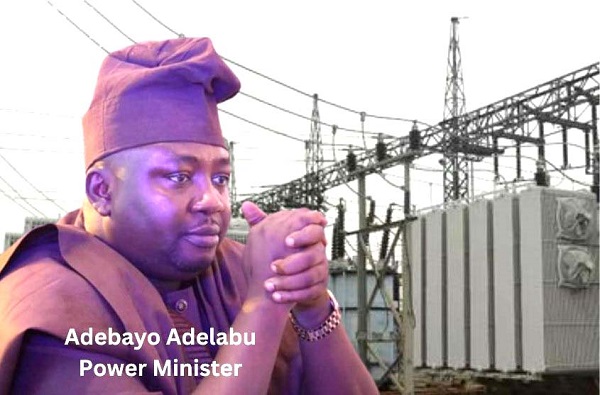Of Humility, Integrity and Shame.

By Abdu Labaran Malumfashi.
I read someone’s comment in the social media saying, that was ‘integrity’, under the headline: ‘Minister of Power Resigns’. Because I did not read the story, it automatically assumed that it was the Nigerian minister of power who had preempted the President, whom I understood was going to move the minister to another Ministry soon.
The Nigerian President was said to have made a promise that he would ensure sufficient power supply in the country in his first term, even if that would be the last thing he would achieve as president, regardless of whether or not he is reelected for a second term. A fighting promise, I said to myself.
When I eventually read the story of the resignation of the minister of power, I found out that the country in question was not Nigeria, but Sierra Leon, whose Power Minister, Alhadji Kanja Sesay, resined from the government saying that he had taken “full responsibility” for the epileptic power supply in the country, particularly the Federal Capital.
The Turkish company supplying electricity to the country was said to have $48 million in unpaid bills with the Sierra Leonian Government, and therefore decided to cut power supply to the barest minimum until payment was made to it.
Part payment of $18 million was said to have been made to the company before it restored power to the federal capital, after which the minister tendered his resignation from the government.
I said in Hausa, ‘koda naji’, loosely meaning, ‘that I should have known better’, because such a thing can only happen elsewhere, but NOT in Nigeria, where sit-tight seems to be the middle name of the country, for sure.
In Nigeria, the words; humility, integrity and shame cannot be spoken in the same breath with the names of many people in top offices. I mean, there is nothing in common between these three words and the names of many top people in the country.
If it were Nigeria, the minister or whoever is in charge of the ministry of power supply, would just cling to his seat and continue as if nothing has happened, because in this country, it is not a matter of humility, integrity or shame, but rather a question of how much money one is going to make from his office and the subsidiary offices.
In fact, on these shores, the innocent party, in this case the electricity customer, would be termed by the ‘oga at the top’ as the one who is guilty and therefore responsible for his power predicament, not the government.
Many of us can remember when about 11 people died during an interview for work into one of the agencies under the ministry of one ‘oga at the top’. But the oga was later to blame the interviewees, including the dead, for the deaths. He remained on his seat until the administration finished its term in office.
And the ‘oga’s people at home ‘rewarded’ him with a seat in the National Assembly. He was ‘elected’ in the Senate, where he would remain out of touch of the anti graft and other agencies of the federal government. Besides, he had the money to get himself the freedom of the freeman that his people would rather he had.
Last time we wrote about the President Richard Nixon’s case, where he was forced to resign from office, because of the political crisis he unleashed in his country, the US.
Again, if this scandal had happened in Nigeria, the oga patapata, whoever that might be, would have blamed either the opposition party or the people involved, but NEVER himself. And he would remain ‘kamfe’ on his seat until he was removed by the Constitution of the land.
But why is the people on these shores so obsessed with the accumulation of so much money that they and their family cannot spend in their lifetime, may be the question begging for asking?
The answer may be found in the context of the corrupt system we operate at almost every aspect of the life of the country we call Nigeria. In this country, everything not only has a price, but can be bought by interested parties when the need for that arises.
The Journalists, the judges, the lawyers, the security officers, the traditional rulers, the religious leaders, name them, all have their prices, and can be ‘bought’ by anybody who has the purchasing power to do so.
The politicians are the worst, in my view, because they get ‘elected’ as many times as the Constitution of the land permits, which is limitless in the case of the assemblies, federal or state.
At the moment, Nigeria’s democracy depends, to a large extent, on the monied people, who can use their wealth to decide whom to ‘elect’ into any office. Most of the ‘rich’ politicians ‘made’ their fortune by illegally ‘tipping’ their hands into the vault of the Commonwealth, yet the society celebrates them.
But the country cannot continue this way, where a few people commandeered the vast Commonwealth, while most of the majority wallow in poverty, with many of them not even affording meal a day.
Malam Malumfashi wrote from Abuja.

